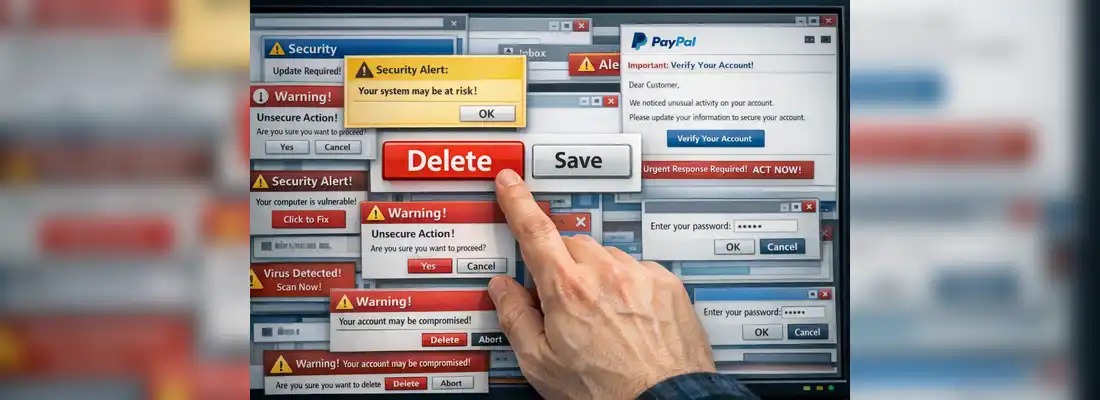Cracking the Coinbase Breach: What Went Wrong and What We Can Learn
Date: 15 August 2025

One of the most influential Cryptocurrency platforms in the world, Coinbase, is the latest victim of a headline-making cyber attack. While there have been other crypto-related hacks in the past, arguably with larger repercussions than those we have seen with Coinbase so far, there’s a lot more at stake here.
As blockchain adoption expands across high-risk digital environments, including trading, gaming, and chance-based platforms, resources like bitcoin.com highlight how users increasingly interact with crypto beyond traditional exchanges, making robust security practices more critical than ever.
Yes, the company is expected to lose $400 million in this latest cyber attack. But the larger concern is the fact that a business of Coinbase’s stature has been impacted so deeply. After all, Coinbase safeguards the majority of the $122 billion in tokens held by spot-Bitcoin ETFs.
Anticipated as a milestone for the cryptocurrency sector, Coinbase's upcoming inclusion in the S&P 500 index is now also overshadowed by this massive development. This news arrives just days before the company is scheduled to join the benchmark.
We've tried to capture everything we know so far in the Coinbase Hack and tried to make sense of the lessons this incident contains for the cybersecurity community at large.
What Happened at Coinbase?
Coinbase, reportedly, began noticing unusual activity from some of its representatives as far back as January, 2025. The breach was orchestrated through insider collusion, where cybercriminals, allegedly, bribed overseas customer support contractors to access internal systems and extract user information. Less than 1% of Coinbase’s monthly transacting users, apparently, had their records accessed.
On May 11, 2025, the attackers, allegedly, demanded a $20 million ransom in Bitcoin, threatening to release the stolen data publicly if their demands were not met.
On May 15, 2025, Coinbase CEO, Brian Armstrong, publicly refused to pay the ransom in a social media post. He said, "We will not fund criminal activity." Instead, Coinbase has offered a $20 million reward for information leading to the arrest and conviction of those responsible for the attack.
Armstrong clarified that customer support staff have limited access to customer information. They cannot access passwords, private keys or funds accessed. They did, however, have access to names, dates of birth and addresses which attackers love to exploit for social engineering attacks.
As per Yahoo News, Coinbase stock fell by 7% in the aftermath of the attack.
Actions Taken by Coinbase So Far
- Immediate Actions: Coinbase, as expected, terminated the contracts of the compromised support agents and reported them to law enforcement agencies. Coinbase also reported the breach to the SEC and said in its 8-K filing that it anticipates suffering a hit of $180 to $400 million in remediation costs and reimbursements.
- Customer Reimbursements: The company has pledged to reimburse customers who were deceived into transferring funds due to the social engineering attacks that ensued the breach. It has put out a detailed blog on how it plans to compensate affected customers.
- Enhanced Security: Coinbase is investing in increased insider-threat detection. The CEO has said they are hardening their systems around customer support to ensure something like this never happens again. They’re also relocating their customer support operations henceforth.
- Reward Offered: While vehemently refusing to pay a ransom, Coinbase has, on the other hand offered a $20 million reward for information leading to the arrest and conviction of those responsible for the attack. Armstrong said in his X post, “For these would-be extortionists or anyone seeking to harm Coinbase customers, know that we will prosecute you and bring you to justice.
What’s the Lesson Here?
The Coinbase breach has several important takeaways for the Crypto industry and the global business community.
A Chainalysis report indicated that cryptocurrency platforms experienced hacks totaling $2.2 billion in stolen funds throughout 2024. Earlier this year, Bybit reported a security breach resulting in the theft of approximately $1.5 billion in digital tokens, making it potentially the largest cryptocurrency hack to date.
Bo Pei, analyst at U.S. Tiger Securities, said to Reuters, "The cyberattack may push the industry to adopt stricter employee vetting and introduce some reputational risks."
Nick Jones, founder of crypto firm Zumo, "As our nascent industry grows rapidly, it draws the eye of bad actors, who are becoming increasingly sophisticated in the scope of their attacks."
Shania Brenson, co-founder and financial expert at 15M Finance: "We view cybersecurity not just as compliance but as a shared responsibility. Our team continuously refines internal controls, encryption systems, and employee training to stay ahead of evolving digital threats."
Apart from Cryptocurrency specific concerns, this incident has further turned the spotlight on the massive Insider Threat that looms large over all businesses. It has yet again, also, highlighted how phishing and social engineering continues to be one of the biggest concerns for the cybersecurity landscape worldwide.
Here are some top takeaways from the Coinbase breach:
Insider Threats: The breach underscores the significant risks posed by insider threats, especially in organisations handling sensitive financial data. This type of breach, originating from within the company's own ranks, can often be more insidious and challenging to detect than external attacks.
Regardless of the motive, the consequences of such breaches can be devastating. In the case of a financial institution like Coinbase, a successful insider attack has led to the theft of sensitive personal and financial information and customer funds in some cases. Coinbase will also be grappling with severe reputational damage, significant regulatory fines, and a loss of customer trust for a while.
This necessitates a multi-layered security approach that goes beyond traditional perimeter defences.
Importance of Vigilance: Customers should remain vigilant against social engineering attacks and be cautious of unsolicited communications requesting personal information or fund transfers. It’s important to be wary of any unsolicited communications, regardless of the apparent sender or platform (email, phone calls, text messages, social media), that request personal information, demand urgent fund transfers, or direct you to suspicious websites.
Cybercriminals frequently impersonate legitimate entities, including Coinbase or other financial institutions, to create a false sense of urgency and trust. Always independently verify the authenticity of any such communication through official channels before taking any action.
Industry-Wide Implications: This incident highlights the need for robust security protocols across the cryptocurrency industry. It also emphasises the need for ongoing user education regarding best security practices to mitigate the risk of social engineering attacks and unauthorised access.
Collaborative efforts across the industry, including information sharing and the development of standardised security frameworks, are essential to collectively strengthen defences. Those monitoring the crypto market, particularly ripple price, will benefit from staying informed about security developments across the industry.
Final Word
The Coinbase Hack has brought up many questions related to security in the cryptocurrency industry. But what’s the more worrying detail here? This could happen to ANY business. Insider threats are something that NO business is immune to. Insider threats aren’t hypothetical risks; they are real, costly, and often go undetected until it's too late.
The breach has once again underscored how important it is to incorporate robust internal controls. Strict access management protocols, thorough background checks, and continuous monitoring of user behaviour are no longer optional. Work with a cybersecurity service provider to implement and operationalize these safeguards quickly.
Comprehensive employee training programmes focused on identifying and reporting suspicious activities should be made a business priority. Addressing the insider threat effectively requires a proactive and holistic security posture that acknowledges the inherent risks posed by trusted individuals and implements appropriate safeguards to mitigate these vulnerabilities.
At Cyber Management Alliance, we specialise in helping businesses proactively prepare for and defend against these very risks. Our NCSC Assured Cyber Incident Response Planning Course, and bespoke Cyber Tabletop Exercises are designed to simulate real-world threat scenarios—including insider-driven attacks—and test your organisation’s preparedness across departments.
Whether it’s staff awareness training, playbook creation, or helping you define escalation paths, our NCSC Assured Training and hands-on consultancy services give your teams the clarity and confidence to act quickly and decisively.
Don’t wait for a breach to reveal your weaknesses. Partner with Cyber Management Alliance and let us help you build cyber resilience from the inside out.






.webp)


